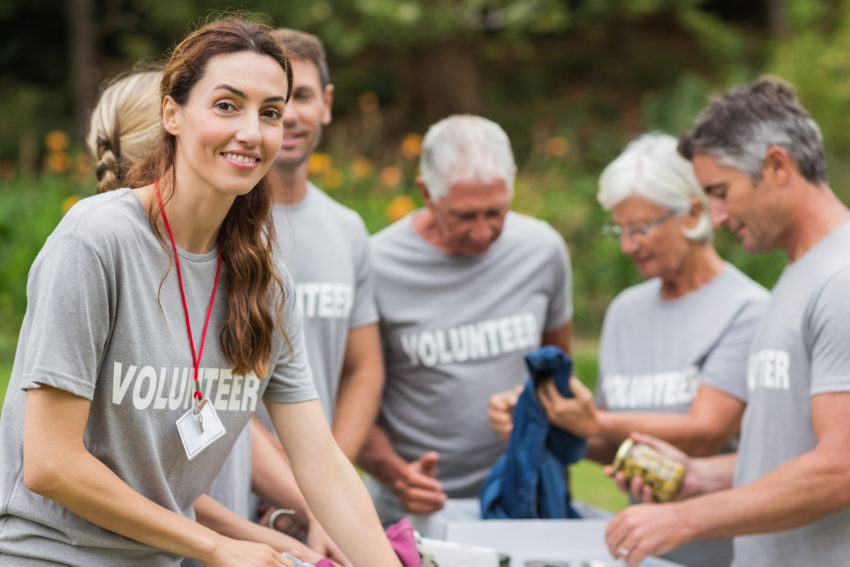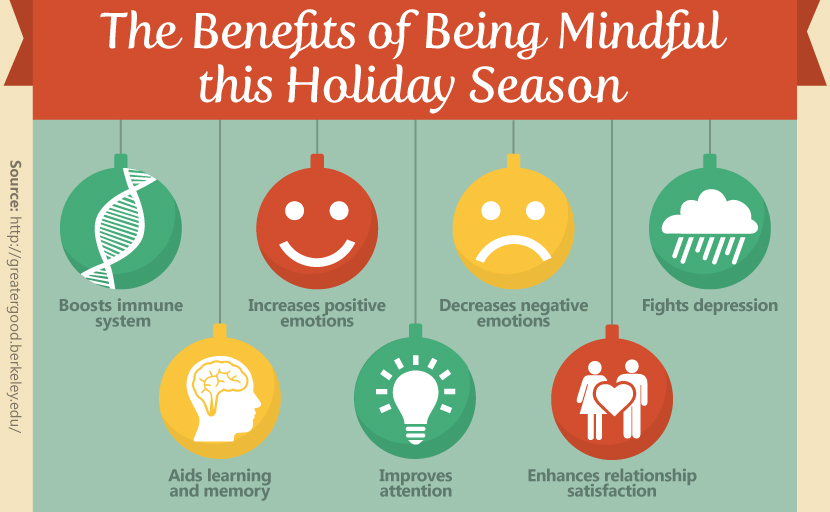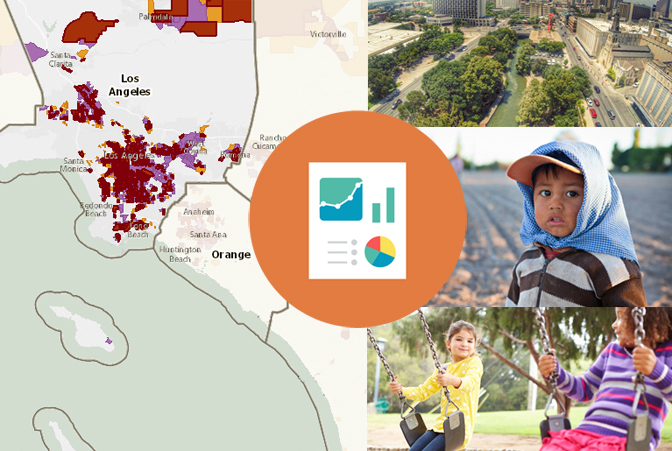
Share On Social!
Stressed-out and down this holiday season?
You might have the “holiday blues.” These are temporary feelings of depression associated with the extra stress, financial constraints, and unrealistic expectations of the season. These can harm long-term mental health.
You might have “seasonal affective disorder.” This is a seasonal depression that happens at the same time every year as the season change, such as the bleak wintertime months.
These conditions are especially worrisome for people who suffer high rates of mental health issues.
Latinos, for example, already face higher rates of depressive symptoms than many of their peers. Fewer Latinos than whites say their child had ever used mental health care services, according to a Salud America! research review.
So what can you do to prevent or manage the holiday blues?
What You Can Do: Avoid Stress
The National Alliance on Mental Illness (NAMI) has great stress-avoiding tips:
- Stay hydrated. Drink plenty of water and herbal teas, and don’t forget to hydrate your skin with lotions and lip balms. Hydration nourishes the brain and its physical effects can improve your overall mood.
- Find time to exercise. The holiday season is a great time to ice skate, ski or hike. If you don’t have access to these outdoor activities, any form of exercise will release endorphins, which can lessen the symptoms of depression.
- Spend time with loved ones. This offers an opportunity for social interaction, which can help lessen the feelings of loneliness that may come around this time of year.
- Pamper yourself. Taking a bath, having a warm drink or getting a massage can create a sense of calm and happiness, especially during the stress of the holidays.
- Indulge without overconsuming. Treating yourself can make you happy, but over-indulging in unhealthy food around the holidays can negatively impact symptoms.
Another good suggestion is to use the holiday season to start your own mental health journey.
“The holidays bring joy and happiness as well as frustration and stress. This holiday season, you may have many things to take care of, but the most important one is yourself,” Jessica Maharaj writes for the NAMI blog.
What You Can Do: Try Mindfulness
Mindfulness means being open and aware of what is happening in the moment.
 “Mindfulness has been shown to improve relationship satisfaction, reduce stress in relationships, and increase empathy,” writes Marlynn Wei for Psychology Today.
“Mindfulness has been shown to improve relationship satisfaction, reduce stress in relationships, and increase empathy,” writes Marlynn Wei for Psychology Today.
Here are a few of Wei’s top mindfulness suggestions for the holidays:
- Practice active listening. Try to understand the complete message that people are conveying. Not just through their words, but also through their actions and body language. It helps to put away your smartphone.
- Expand how you communicate care. Before you buy gifts, ask, What are you trying to communicate through a gift? Are there additional ways to show that feeling or care, such as spending quality time, expressing how you feel about them directly, or doing something nice and supportive?
- Let go of judgment—both for yourself and others. Conflict with family and friends during the holidays can lead to judgment and self-criticism. Notice when you’re making judgments. Take a step back. Simply notice when it is happening and let those thoughts be without entangling yourself in them to give yourself distance from the feeling.
- Balance the “should’s” with awareness of your own needs. Operating on obligations alone and trying to please everyone’s expectations can lead to resentment and burnout. Rather than focus solely on planning the perfect dinner or getting perfect gift, observe how these expectations affect you. Make sure to take the time and space you need to nourish yourself in the meantime.
See the rest of Wei’s suggestions.
What You Can Do: Help Others
Kindness counts!
“Doing a kindness produces the single most reliable increase in wellbeing [for the doer] of any exercise we’ve tested,” said Dr. Martin Seligman of Penn’s Positive Psychology Center.
Thus, volunteering can be a great source of comfort over the holidays.
A national survey of 3,351 adults found that the overwhelming majority of participants reported feeling mentally and physically healthier after a volunteer experience, HuffPost reports.
“Studies have shown that volunteering helps people who donate their time feel more socially connected, thus warding off loneliness and depression,” said Stephanie Watson of the Harvard Health Blog. “A growing body of evidence suggests that people who give their time to others might also be rewarded with better physical health—including lower blood pressure and a longer lifespan.”
Help Promote Health Equity for All People!
If you’re interested in a mental health boost from volunteering, try raising your voice to promote health equity, too.
We at Salud America! have some great opportunities for this:
1. Share Your Town’s Health Equity Report Card!
 Why not be a part of the health solution?
Why not be a part of the health solution?
With our Salud America! Health Equity Report Card, you can select your county and get customized data on local obesity, food access, physical activity, and health equity issues compared to the state and nation, and comparing Latinos to non-Latinos.
You can then email your Report Card to school, city, and elected leaders.
Get your health equity Report Card!
2. Start a School Food Pantry!
About 1 in 6 children are food insecure. They don’t know where their next meal is coming from.
Your school can help these kids!
The new Salud America! “School Food Pantry Action Pack” is a free guide to help school personnel talk to decision-makers, work through logistics, and start a School Food Pantry to help hungry students and reduce local food insecurity.
A School Food Pantry accepts, stores, and redistributes donated and leftover food to students.
The Action Pack was created by Dr. Amelie G. Ramirez, director of Salud America! at UT Health San Antonio. Dr. Ramirez had input from Jenny Arredondo, nutrition director at San Antonio ISD, who started school food pantries on 10 campuses in 2017-18, based on a Texas law change led by Diego Bernal.
3. Create a Trauma-Sensitive School!
The new Salud America! “Trauma Sensitive School Action Pack” is a free guide with coaching to help school personnel talk to decision-makers, build a support team, craft a system to identify and support traumatized students, and more!
Thank you for visiting our website. Thank you for your strong interest in health equity and mental health.
Happy holidays!
Explore More:
Mental HealthBy The Numbers
142
Percent
Expected rise in Latino cancer cases in coming years




